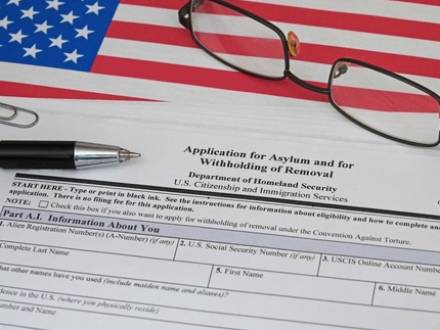Who Qualifies for Political Asylum?
 Political asylum allows people fleeing persecution to remain in the United States and build a new life in safety. For many immigrants in San Francisco and across the Bay Area, asylum is not just a legal process — it is a lifeline. It is also a legally complex and emotionally difficult journey that depends on meeting strict criteria and presenting a strong case supported by good evidence.
Political asylum allows people fleeing persecution to remain in the United States and build a new life in safety. For many immigrants in San Francisco and across the Bay Area, asylum is not just a legal process — it is a lifeline. It is also a legally complex and emotionally difficult journey that depends on meeting strict criteria and presenting a strong case supported by good evidence.
If you are seeking asylum because of political or religious persecution, targeted violence, or threats to your freedom or safety in your home country, you may qualify for this protection under U.S. immigration law. Our Bay Area immigration attorneys are here to help in English, Bengali, or with interpreters for Spanish, Hindi, Punjabi, and Urdu.
What Does U.S. Law Require for Political Asylum?
To qualify for political asylum in the United States, you must demonstrate that you are unable or unwilling to return to your country of origin because of past persecution or a well-founded fear of future persecution. The persecution must be based on at least one of five protected grounds: race, religion, nationality, membership in a particular social group, or political opinion.
You can apply for asylum in two ways. Affirmative asylum is when you proactively file an application with U.S. Citizenship and Immigration Services (USCIS) before you are placed in removal proceedings. If USCIS does not approve the application and you are not in lawful status, your case will be referred to an immigration court. Defensive asylum, on the other hand, is requested as a defense to deportation when you are already in removal proceedings. In either process, the burden is on you to prove your eligibility, and a great lawyer is crucial for success.
As of June 2025, applicants generally must file their claim within one year of entering the U.S., though exceptions may be made for extraordinary circumstances, such as trauma, illness, or changes in the law or country conditions.
What Counts as Political Persecution?
Persecution includes serious threats, violence, or oppression. For many South Asian and Muslim asylum-seekers, this may take the form of being targeted by government authorities, detained without charges, tortured, or forced to suppress religious or political beliefs. We have represented clients fleeing governments that violently punish peaceful activism, criminalize religious practice, or ignore gender-based and sectarian violence.
Attorney Karim brings a deep understanding of these struggles, especially within Bangladeshi, Pakistani, and Indian Muslim communities. She is fluent in Bengali and has worked closely with clients escaping persecution based on political dissent, religious identity, LGBTQ+ status, and family ties to targeted groups. Her cultural insight and ability to communicate directly in Bengali helps clients feel seen, heard, and supported throughout the legal process.
Attorney Hafey has worked with many clients from India and Nepal fleeing political persecution. He takes pride in his success rate with clients from Haryana and Punjab, and is a strong advocate for immigrant rights and keeping families together.
How Do You Prove an Asylum Claim?
A successful asylum application often hinges on detailed personal testimony. You must be prepared to tell your story clearly, explain why you fear returning home, and support your claims with evidence. This may include:
-
Affidavits from friends or family
-
Letters from organizations or faith leaders
-
News articles about the political situation in your home country
-
Expert declarations from human rights groups.
If you are facing removal proceedings, your hearing will take place before an immigration judge. If you are applying affirmatively through USCIS, you will attend an interview where an asylum officer will assess your credibility, review your documentation, and decide whether to grant relief.
Working with an experienced immigration lawyer can make a significant difference. Many people are denied asylum because of small errors, lack of documentation, or difficulty explaining their fear in English. We help our clients prepare carefully, translate essential documents, and tell their stories with honesty, dignity, and a compelling legal strategy.
What Happens After Asylum Is Granted?
If your asylum case is approved, you can live and work in the U.S. legally. After one year, you can apply for lawful permanent residence (a green card). Eventually, you may apply for citizenship. You may also petition to bring your spouse and children to the United States, if they are still abroad and face similar risks.
Asylum is so important because it is much more than just a legal status. It is a path toward rebuilding a safer, better life. Our team is committed to standing beside you every step of the way.
Contact a San Francisco, CA Immigration Attorney
If you believe you may qualify for political asylum, contact a Bay Area asylum application lawyer at Hafey & Karim. We serve clients in English, Bengali, and other languages common in the Bay Area. Call 214-506-0671 today to begin your asylum process with guidance you can trust.





